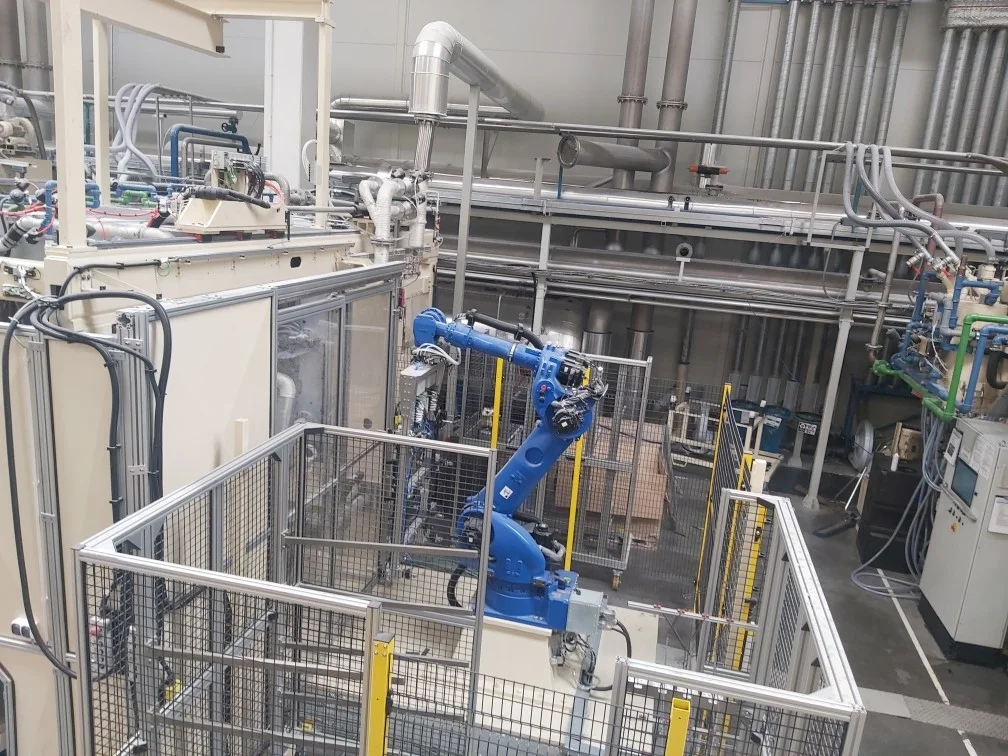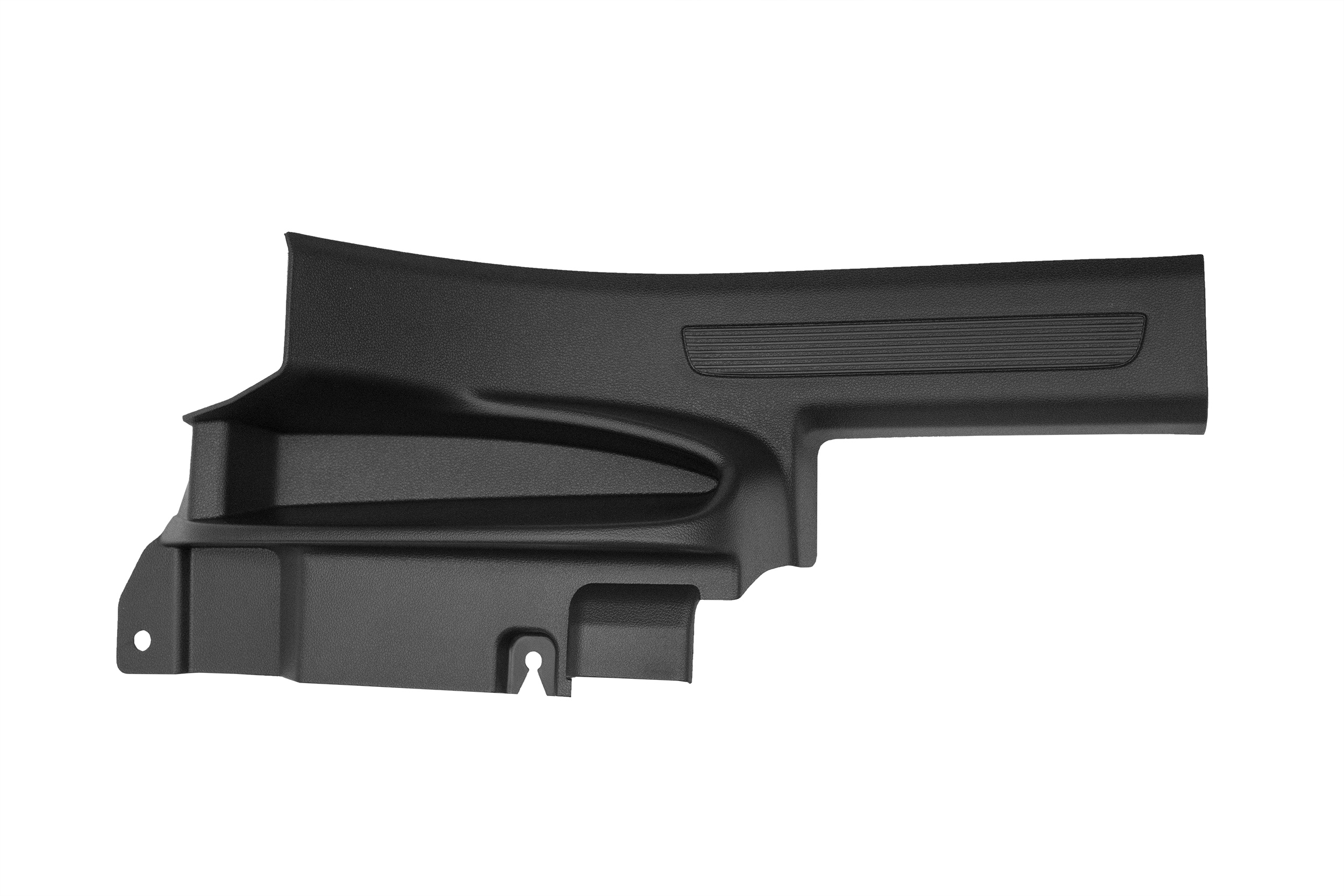Collaborative robots, also known as cobots, are industrial robots that are designed to enable direct interaction with humans – without the need for partitions or safety barriers. Cobots have now been more and more present in the automotive industry. It is one of the most robotized industries – it is worth finding out what cobots are, what types there are and what they can be used for.
What are collaborative robots?
The way collaborative robots work is very similar to traditional industrial robots. The main difference here is the use of specialized sensors and safety systems in cobots, thanks to which they can detect movement and the presence of humans in the vicinity. In addition, collaborative robots are characterized by a fully human-safe design. Such devices are modular, and thus can be easily configured and customized. Cobots are also often equipped with advanced vision systems that allow them to constantly observe their surroundings and react to changes in real time.
Types and applications of collaborative robots in the industry
The rapid development of robotization has led to the creation of many types of collaborative robots in recent years. Depending on specific applications, one can distinguish, among others, cooperative robots, which work closely with humans to perform specific tasks, and assistive robots, whose primary task is to help people perform repetitive tasks.
Cobots have a very wide range of applications in modern industry. They are most often used in the assembly of parts, packaging and palletizing, transportation, quality inspection, supporting workers and conducting various tests. One industry where collaborative robots are used on a very large scale is the automotive industry. Here, they can offer many more advantages over traditional industrial robots. As a result, a true car factory of the future is already possible, where cobots are used to assemble vehicle components, weld and paint bodies, take measurements and simulate operating conditions, among other things.
The greatest advantages of cobots are their high flexibility and safety. These are factors that allow for increasing production efficiency and reducing the risk of accidents. There is also an increase in the precision of the operations performed, which directly translates into the quality of the final product.
Development of manufacturing robotization in the automotive industry

In recent years, the automotive industry has been developing at a very dynamic pace. Modern companies are implementing more and more innovative solutions to streamline processes and increase production efficiency. One example is CAE software in injection molding technology, which allows, among other things, to assess feasibility, accurately calculate assumed costs and apply advanced simulation methods.
The development of manufacturing robotization in the automotive industry is of great importance for the innovation of such processes. Industrial and collaborative robots are able to perform tasks at much higher speeds than humans. Other advantages include greater precision, increased safety, cost reduction, better flexibility and energy efficiency, as well as improved working conditions. All this translates directly into greater competitiveness of a company in the market. Implementing new technologies and innovative solutions, which include production robotization, are a guarantee of greater brand attractiveness in the eyes of customers and business partners.
Robotization of processes and Industry 4.0
Nowadays, it is becoming more and more common to hear about the next industrial revolution, which is changing the way goods and services are produced. Its integral component is the robotization of production. Industry 4.0 is a concept based on the use of the latest information technologies, such as IoT, artificial intelligence and Big Data, which aims to increase the efficiency of production processes. In this context, automation and robotization of production play a key role. Such solutions are a way to streamline many tasks, seamlessly exchange data and continuously adapt to changing conditions.
One of the biggest challenges faced by Industry 4.0 and the associated Purchasing 4.0 is process integration. In this context, collaborative robots are particularly relevant. It is possible to combine them with management and logistics systems – thus significantly minimizing waste and optimizing processes throughout the whole supply chain. Industry 4.0 and robotization are of great importance when it comes to automotive design and manufacturing processes, which are often very complex. The innovations that are being implemented make it possible to automate and streamline them as well as raise quality and safety standards.
Knauf Automotive – supplier of reliable plastic components

Knauf Automotive is an expert in the automotive industry. We are a trustworthy supplier of plastic parts with many years of experience. Among other things, we provide our customers with injection molded automotive parts that are created using state-of-the-art solutions. We use advanced software and innovative industrial robots, which are responsible for the highest quality and precision of the offered products. Their applications include the assembly of injection-molded components and many other post-production services. EPP and EPS automotive components are our specialty – feel free to contact us for more information.